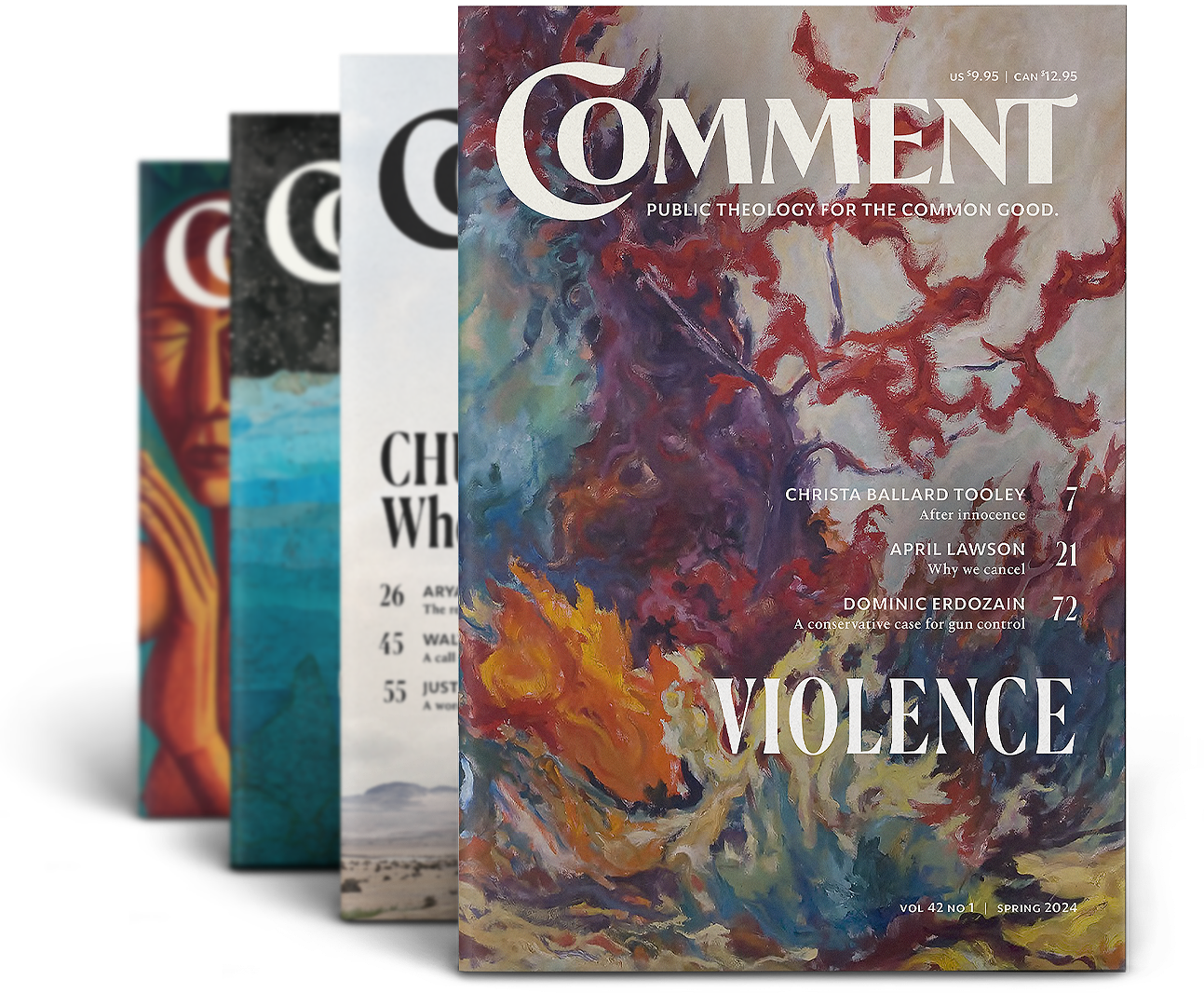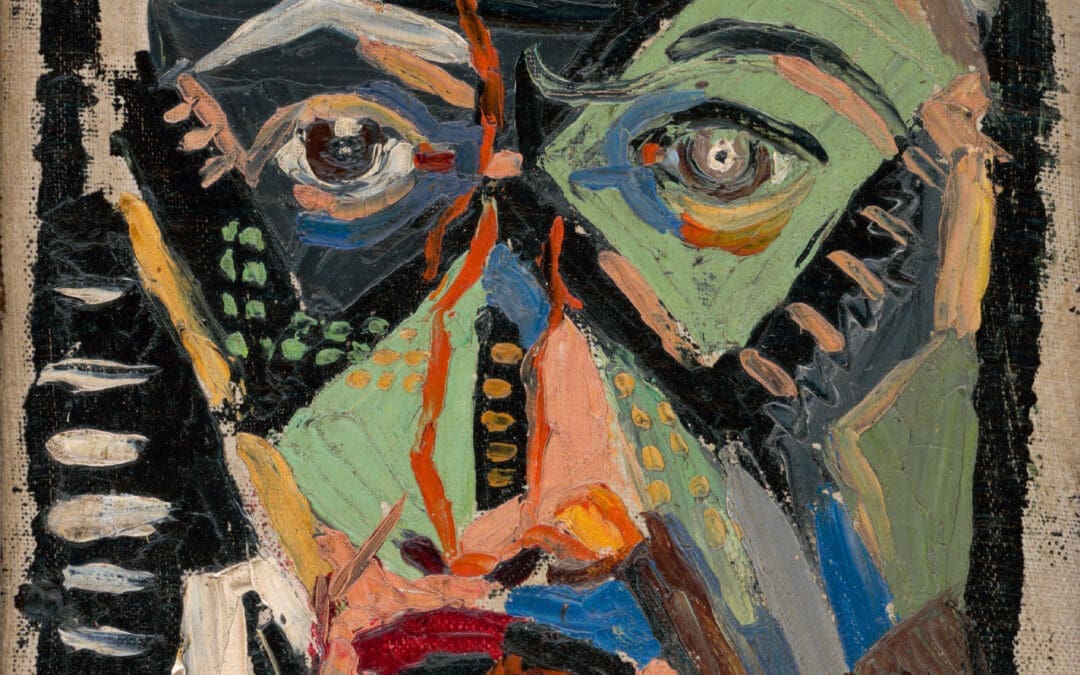The Veritas Forum hosted a commencement speech contest for the class of 2020, together with Comment and Augustine Collective. As Veritas wrote in the invitation to graduating seniors, “Some people describe commencement speeches as “cultural barometers” that offer windows into what our society sees as the purpose of life. We cannot imagine a more important year than 2020 for graduating seniors to write and share their own commencement speeches—not only to serve as markers of this historic year, but also to lament and hope as a collective.”
You can read the other two contest winners here and here.
Before committing to Cornell, I first resolved to visit its campus. The joke of “Ithaca is Gorges” aside, and to steal a metaphor from Billy Collins, I wanted to “walk inside the poem’s room / and feel the walls for a light switch.” Growing up in Chicago and learning about life’s realities from poetry-slam nights and rides on the CTA, I sensed that Location was a teacher whose pedagogy extended beyond the classroom. What would Ithaca’s syllabus be?
I cast a vision for the next four years on the campus tour, placing myself in the shoes of a hypothetical student. As my dad and I made the trek to campus, I asked myself whether the hour-long trip to and from the Syracuse airport would be worth it come Thanksgiving. On campus, seeing humanities professors in conversation with students over soups at Temple of Zeus, I imagined fighting for a spot at one of the porcelain tables. And as I attended a church service in Anabel Taylor Hall, I wondered what living out my faith would look like without my parents. In all of this, place was paramount. I expected to find my new identity as a student within long-established rhythms engraved on Cornell’s soul and soil.
As of today, writing and speaking to you, the class of 2020, from behind a screen, the sensation of drinking in cafés, walking outside in large groups, and congregating in closed spaces feels like another lifetime. Words like “crazy” and “unprecedented” barely characterize the grim moment we’re all in. Isn’t it always the things we least expect to lose that wind up hurting the most when they’re gone? Grandparents at graduation, wedding celebrations, checking off the final things of the “161 Things to Do at Cornell” list. Add to these losses an uprooting of the structures that helped us forge adult habits and identity: What does it mean to be a student without classmates? What is friendship across time zones? What are proper boundaries in a screen-mediated life?
Grief has a way of consuming everything; it’s tempting to overvalue the particular texture of our class’s struggle as some universal experience worthy of global lament. Even while writing this speech, it was hard to reflect on all the experiences that preceded these few months of frustration, pain, and hardship. Grief obliterates memory.
But not all is lost. This unsettling time has also revealed the constants—not all of them pretty. I still crave control of my schedule. I still need to make time “productive” and useful. I am a chronic procrastinator and spend too much time in front of Netflix. But these days have also enhanced my clarity of about what truly matters. It has provided me the opportunity to ask whether the “normal” we are accustomed to is worth going back to.
Throughout undergrad, I would frequently fill any scrap of spare time on my calendar with events or work, frequently leading to double and triple bookings. So much of my identity was found in being everywhere and all things to all people. I rarely paid attention to my surroundings or was ever fully present in one space; I was often thinking of where I had to go next. Though drained, I told myself that this way of life was fulfilling.
But this time in quarantine has forced me to channel my energies into my immediate community: the friends I’m currently staying with in housing off-campus. While I long to return to the communities that helped me discover myself and my purpose, I have had the privilege of being fully present with an undivided mind. From house church to celebrating birthdays with homemade pastries, I have received newfound joy in the depth of life, not only its breadth.
These are lessons I want to carry with me into this next season. Not all lessons have to be learned through fire, and I mourn all that’s been stolen from our expectations this season. We don’t get to choose our ways to wisdom, but I’m grateful that in the mysterious economy of life, tragedy can be transformed into something good. Suffering doesn’t have to be wasted.
So, class of 2020, at this moment it is so easy to tie our meaning to the places and things around us—places and things that likely seem shrunken, inopportune, made for someone else. It seemed a simpler era only a few months ago, when we had our pick of friends and lots of time. But do not neglect this opportunity to turn inward; to see the brutal truth of what anchors you; to assess what you turn to in times of crisis. While the methods of the work we do may change, the meaning does not. Our Why does not. We can step into uncertainty as more polished and refined learners, friends, and stewards of all we’ve been given.
I want to close with a line from Valley of Vision, a Puritan book of prayers: “Lord, in the daytime stars can be seen from deepest wells, deepest wells, and the deeper the wells the brighter Thy stars shine.” Class of 2020, we are in the midst of a deep well. But don’t forget what we’ve gained, what we have. The world is watching us; what we do will have an impact yet. We should not strive to do better for the sake of vainglory but to demonstrate that there is no trial in which death, destruction, and pain have the final say. May we remember that which anchors us and holds us still, knowing that the stars are coming.


